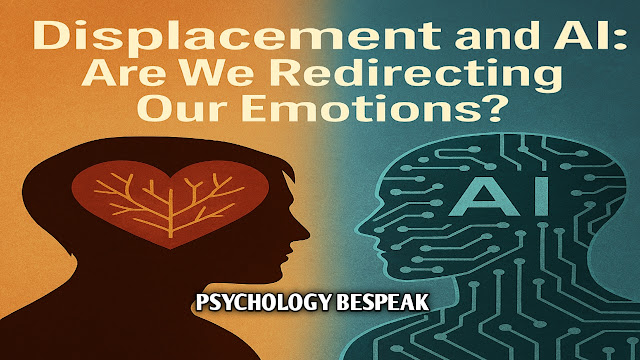Sharad Purnima and the Psychology of Moonlit Presence
🌕Sharad
Purnima and the Psychology of Moonlit Presence
Sharad Purnima, also known as Kojagiri Purnima, marks the brightest full
moon of the year. In the Hindu calendar, it falls in the month of Ashwin
(September–October), symbolizing abundance,
healing, and emotional clarity. But beyond its mythological and ritual
significance, Sharad Purnima offers a compelling lens into psychological attunement, emotional regulation, mindful
wakefulness and communal presence.
🌙 Moonlight as Emotional Medicine
On
this night, the moon is believed to be closest to Earth, radiating cooling, nectar-like rays with healing properties
aligns with somatic psychology. Psychologically, this aligns with the concept
of environmental regulation—how natural
elements like light, temperature, and rhythm influence emotional states.
Sitting under moonlight, absorbing its calm, becomes a form of somatic grounding, reducing stress and enhancing
parasympathetic activation. The practice of moon-gazing and meditating under
the full moon is a form of mindfulness meditation. This practice trains the
mind to focus on the present moment, which helps calm the nervous system,
reduce anxiety, and promote emotional balance. The psychological concept of
mind-body connection aligns with the traditional belief that lunar cycles
influence one’s mental and physical well-being.
The
tradition of placing kheer under moonlight isn’t just symbolic—it reflects a ritual of nourishment, where food becomes infused
with intention, patience, and lunar rhythm. Eating it the next morning is akin
to consuming a memory of stillness.
🧘♀️ Wakefulness and
Inner Vigil
Sharad
Purnima is also called Kojagiri, derived from “Ko+Jagarti”—Who
is awake? is not just a spiritual question; it’s psychological. Staying
awake through the night, chanting, meditating, or simply being present, mirrors
psychological meta-awareness:
the ability to witness one’s thoughts and emotions without judgment. It’s a
night of non-reactive presence, where one
observes rather than performs.
Sharad
Purnima invites this state, not through isolation, but through communal
silence and shared moonlight.
💫 Mythology as
Emotional Archetype
The
Raas Leela of Krishna and the Gopis, said to occur on this night, isn’t just a
tale of divine love—it’s an archetype of emotional
synchrony. It’s not just divine love—it’s relational resonance. The
dance reflects attunement, where each
movement is a response, not a reaction.
Similarly,
the belief that Goddess Lakshmi blesses those who remain awake reflects a
deeper truth: emotional presence invites
grace. Not through striving, but through stillness.
🕯️ Psychological
Takeaways
• Moonlight rituals offer
a natural form of emotional regulation and sensory grounding.
• Wakefulness becomes a metaphor for mindful
presence and inner clarity.
• Communal silence fosters
emotional safety and shared attunement.
• Mythological narratives provide symbolic frameworks for understanding love, abundance,
and emotional rhythm.
Sharad Purnima isn’t just a
festival—it’s a psychological invitation. To
sit in moonlight, to stay awake with intention, to nourish the body and mind
with ritual. In a world of noise, it offers a night of quiet shimmer.
For those walking a path of inner
transformation, this may offer quiet support:
👉 Sharad Purnima vrat katha in hindi
👉Partish Laddu Gopal White Dress forSharad Purnima with Pagdi and Patka
(Affiliate link—shared gently)
Thank you everyone for
viewing this blog, liking it, sharing it, sending your comments and subscribing
to the blog and letting it fulfill the purpose for which it was made.
For
more articles:
Ø Want to know the secret of being winner TO BE A WINNER BE DEAF TO NEGATIVITY
References
:
1. MyPujaPandit https://mypujapandit.com/blog/sharad-purnima-significance-and-importance
2. Mahakal.com https://mahakal.com/blog/en/sharad-purnima-2025-rituals-importance





Comments
Post a Comment